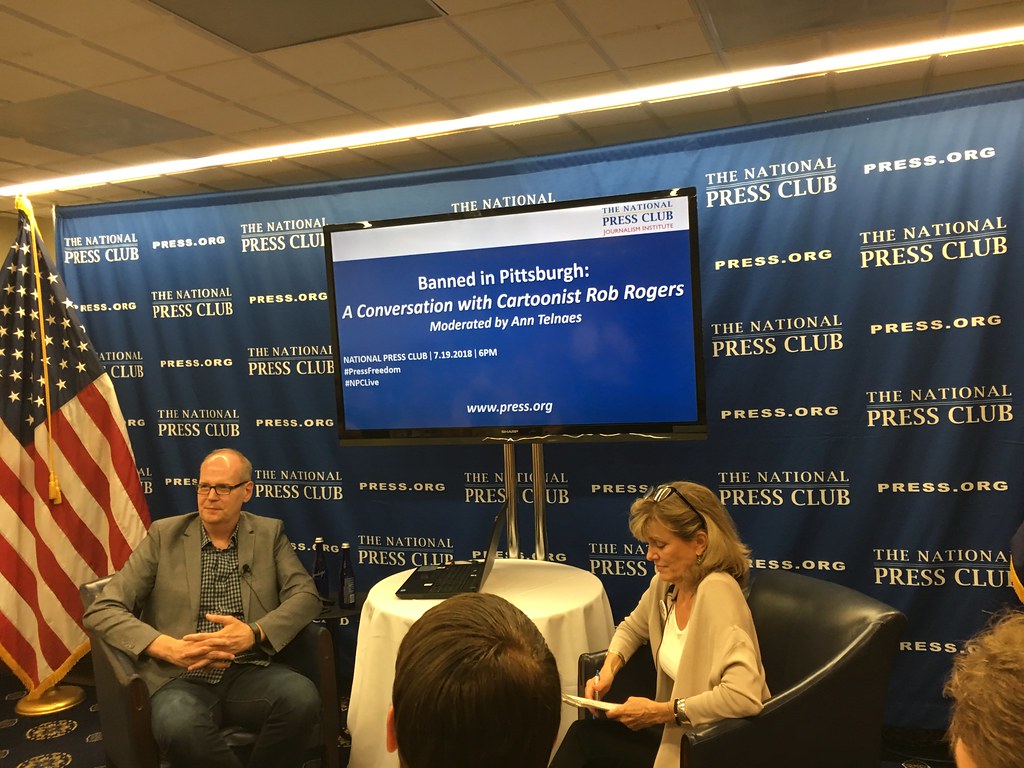Takeaways:
- A Pulitzer-winning cartoonist, Ann Telnaes, resigned from The Washington Post after her cartoon targeting billionaires, including Jeff Bezos, was rejected by the paper.
- The incident raises concerns about editorial independence in media owned by influential figures.
- The cartoon, which went viral, criticized corporate leaders for allegedly seeking favor with Donald Trump.
Jeff Bezos Cartoon Sparks Media Independence Debate
A controversy involving a cartoon by Pulitzer-winning editorial cartoonist Ann Telnaes has ignited discussions about press freedom and the influence of billionaire media owners. Telnaes, who recently resigned from The Washington Post, revealed that her cartoon—depicting billionaires such as Jeff Bezos, Mark Zuckerberg, and others bending the knee to Donald Trump—was pulled by the paper’s management.
Corporate Titans and Political Favor
Telnaes’ cartoon criticized tech leaders and corporate titans, including Amazon founder Jeff Bezos, for their perceived efforts to curry favor with then-President-elect Donald Trump. The artwork—shared on Telnaes’ Substack—showed figures like Bezos, Zuckerberg, and Sam Altman kneeling while offering bags of money to a looming figure, representing Trump.
Reports revealed that Bezos attended a dinner at Trump’s Mar-a-Lago and that Amazon donated $1 million to Trump’s inauguration. Other tech giants, including Apple and Facebook, also contributed $1 million each. Ahead of the election, Bezos was criticized when The Washington Post declined to endorse Kamala Harris for president, a decision reportedly influenced by Bezos himself.
Telnaes Speaks Out
In her Substack post, Telnaes wrote, “I have had editorial feedback and productive conversations about cartoons I’ve submitted, but I’ve never had a cartoon killed because of who or what I chose to aim my pen at. Until now.” She called the decision a failure of the newspaper’s duty to uphold press freedom and expressed concern over the implications of billionaire ownership on editorial independence.
“Owners of such press organizations are responsible for safeguarding that free press,” she added. “Trying to get in the good graces of an autocrat-in-waiting will only result in undermining that free press.”
The Washington Post’s Defense
David Shipley, the Opinions editor for The Washington Post, countered Telnaes’ claims in a statement to The New York Times. Shipley said the decision to spike the cartoon was not influenced by external pressures but by editorial judgment.
“Not every editorial judgment is a reflection of a malign force,” he stated. “We had just published a column on the same topic and had already scheduled another satire piece for publication. The only bias was against repetition.”
Public and Political Reaction
Telnaes’ resignation and the unpublished cartoon gained widespread attention after she shared the draft online. The incident fueled public criticism of Bezos and The Washington Post. Norman Ornstein, a contributing editor at The Atlantic, posted on social media, “Democracy dies at The Washington Post,” echoing the paper’s own slogan, “Democracy Dies in Darkness.”
Senator Elizabeth Warren also weighed in, tweeting, “Big Tech executives are bending the knee to Donald Trump, and it’s no surprise why: Billionaires like Jeff Bezos enjoy paying lower tax rates than public school teachers.”
A Pattern of Controversy
The cartoon controversy is not the first time Bezos’ ownership of The Washington Post has drawn scrutiny. In October, the paper’s decision to forgo a presidential endorsement led to internal dissent, with two columnists and two editorial board members resigning. Over 200,000 readers also canceled their subscriptions.
In a subsequent op-ed, Bezos defended the move, arguing that endorsements create a perception of bias and undermine journalistic independence. “Ending them is a principled decision, and it’s the right one,” he wrote.
What’s Next for Media Independence?
The incident highlights broader concerns about media ownership and its impact on editorial freedom. As billionaire owners increasingly dominate the media landscape, critics warn that such control could compromise the independence necessary for a free press to thrive in a democracy.
